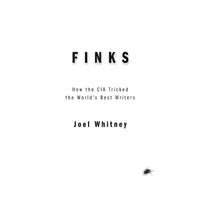- Description
What if the CIA, in its Cold War infancy, reached as far as one literary magazine - and went on to shape American literature as we know it? In Finks, Joel Whitney details the CIA's intimate ties to the arts, and delves into the murky history of The Paris Review.
When news broke that the CIA had colluded with literary magazines to produce cultural propaganda throughout the Cold War, a debate began that has never been resolved. The story continues to unfold, with the reputations of some of America's best-loved literary figures - including Peter Matthiessen, George Plimpton, and Richard Wright - tarnished as their work for the intelligence agency has come to light.
Finks is a tale of two CIAs, and how they blurred the line between propaganda and literature. One CIA created literary magazines that promoted American and European writers and cultural freedom, while the other toppled governments, using assassination and censorship as political tools. Defenders of the "cultural" CIA argue that it should have been lauded for boosting interest in the arts and freedom of thought, but the two CIAs had the same undercover goals, and shared many of the same methods: deception, subterfuge and intimidation.
Finks demonstrates how the good-versus-bad CIA is a false divide, and that the cultural Cold Warriors again and again used anti-Communism as a lever to spy relentlessly on leftists, and indeed writers of all political inclinations, and thereby pushed U.S. democracy a little closer to the Soviet model of the surveillance state.
Author: Joel Whitney
Publisher: OR Books
Page Count: 352pp
Size: 5.5 x 8
Notes: paperback
Date of Publication: February 13, 2018
ISBN: 978-1944869526


